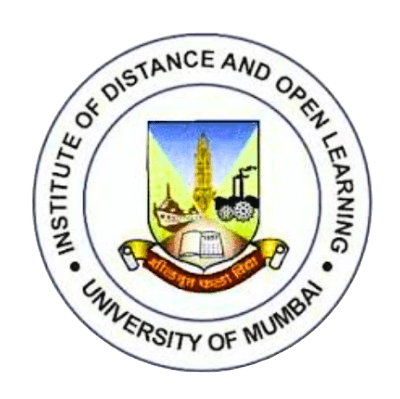M.COM SEMESTER – IV (CBCS)
BUSINESS STUDIES (MANAGEMENT)
SUPPLY CHAIN MANAGEMENT LOGISTICS
Q.7 Explain the factors for selecting a
suitable channel in a business scenario.
ANS:
Various constituents of the marketing mix like
promotion etc., are closely related to the channels of distribution. A wrong
choice of distribution channel ultimately increases the price of the product.
Deciding a proper channel of distribution is not an easy task. It involves a
careful study and consideration of many factors stated below. Some of the
factors to consider while selecting a channel of distribution are: (1) The
Nature of the Product (2) The Nature of the market (3) The Nature of Middlemen
(4) The nature and size of the manufacturing unit (5) Government Regulations and
Policies and (6) Competition.
1) The Nature of the Product:
These factors include physical
characteristics of a product and their impact on the selection of a particular
channel of distribution. Various factors under this category are:
(a) Perishability:
Products which are perishable in nature are
distributed by employing a shorter channel of distribution so that goods could
be delivered to the consumers without delay. Delay in distribution of these
products will deteriorate their quality.
(b) Size and weight of product:
Bulky and heavy products like coal and food
grains etc. are directly distributed to the users involving heavy
transportation costs. In order to minimise these costs a short and direct
distribution channel is suitable.
(c) Products with lesser:
Unit value and high turnover are distributed
by employing longer channels of distribution. Household products like utensils,
cloth, cosmetics etc. take a longer time to reach the consumers. On the other
hand, products like jewellery having high product value are directly sold to
the consumers by the jewellers.
(d) Standardisation:
Products of standard size and quality usually
take longer by adopting longer channels of distribution. For example, machine
tools and automobile products which are of standard size reach the consumer through
the wholesalers and retailers. Un-standardised articles take less time and
pass-through shorter channels of distribution.
(e) Technical Nature of Products:
Industrial products which are highly
technical in nature are usually distributed directly to the industrial users
and take lesser time and adopt shorter channels of distribution. In this case
after sales service and technical advice is provided by the manufacturer to the
consumers. On the other hand, consumer products of technical nature are usually
sold through wholesalers and retailers. In this manner a longer channel of distribution
is employed for their sales. After sales services are provided by the
wholesalers and retailers. Examples of such products are televisions, scooters,
refrigerators, etc.
(f) Product Lines:
A manufacturer producing different products
in the same lines sells directly or through retailers and less time is consumed
in their distribution. For example, in automobile rubber products this practice
is followed. On the other hand, a manufacturer dealing only in one item
appoints sole selling agents, wholesalers and retailers for selling the
product. For example, in the case of ‘Vanaspati Ghee’, a longer distribution
channel is undertaken.
2) The Nature of the market:
This is another factor influencing the choice
of a proper channel of distribution. In the words of Lazo and Corbin ―Marketing
managements select channels on the basis of customer wants-how, where and under
what circumstances. The number of buyers of the product affects the choice of a
f channel of distribution.
Following factors are considered in this
regard:
(a) Consumer of industrial market:
In the case of industrial markets, the number
of buyers is less; a shorter channel of distribution can be adopted. These
buyers usually directly purchase from the manufacturers. Marketing
intermediaries are not needed in this case. But in the case of consumer
markets, where there are a large number of buyers, a longer channel of
distribution is employed. Distribution process cannot be effectively carried
out without the services of wholesalers and retailers.
(b) Number of prospective buyers:
If the number of buyers is likely to be more,
the distribution channel will be long. On the other hand, if the number of
consumers is expected to be less, the manufacturer can effectively sell
directly to the consumers by appointing salesmen.
(c) Size of the order:
If the size of the order placed by the
customers is big, direct selling can be undertaken by the manufacturer as in
the case of industrial goods. But where the size of the order is small,
middlemen are appointed to distribute the products.
(d) Geographic concentration of market:
Where the customers are concentrated at one particular
place or market, the distribution channel will be short and the manufacturer
can directly supply the goods in that area by opening his own shops or sales
depot. In cases where buyers are widely scattered, it is very difficult for the
manufacturer to establish a direct link with the consumers, services of wholesalers
and retailers will be used.
(e) Buying habits of customers:
This includes tastes, preferences, likes and
dislikes of customers. Customers also expect certain services like credit and personal
attention and after sales services etc. All these factors greatly influence the
choice of distribution channel.
3) The Nature of Middlemen:
Marketing intermediaries are vital components
in the distribution of goods. They greatly influence the marketing of goods. Important factors relating to the selection
of a particular middleman are explained as under:
(a) Cost of distribution of goods:
Cost of distribution through middlemen is one
of the main considerations to be taken into account by the manufacturer. Higher
cost of distribution will result in the increased cost of product. The
manufacturer should select the most economical distribution channel. In
finalising the channel of distribution, services provided by the intermediaries
must be kept in mind. It may be pointed out that the manufacturer can select an
expensive marketing intermediary because that may ensure various marketing
services which cannot be offered by others.
(b) Availability of desired middlemen:
Sometimes desired middlemen may not be
available for the distribution of goods. They may be busy dealing with
competitive products. Under such circumstances the manufacturer has to make his
own arrangements by opening his branches or sales depots to distribute the
goods to the consumers.
(c) Unsuitable marketing policies for
middlemen:
The marketing policies of the manufacturer
may not be welcomed by the middlemen the terms and conditions may not favour
the middlemen. For example, some wholesalers or retailers would like to act as
sole selling agents for the product in a particular area or region.
(d) Services provided by middlemen:
The manufacturer should select those
middlemen who provide various marketing services viz, storage, credit and
packing etc. At the same time the middlemen should ensure various services to
customers.
(e) Ensuring greater volume of sales:
A manufacturer would like to appoint
middlemen who assure greater sales volume over the long run.
(f) Reputation and financial soundness:
In appointing a middleman, the manufacturer
must take into consideration the financial stability and reputation of the
middleman. A financially sound middleman can provide credit facilities to
customers and make prompt payment to the manufacturer.
4) The nature and size of the manufacturing
unit:
The nature and size of the manufacturing unit
has a great impact on the selection of a distribution channel. The various
considerations in this regard are as follows:
(A) Manufacturer Reputation and
Financial Stability:
Reputed and financially sound manufacturing
concerns can easily engage middlemen as compared to lesser reputed and newly
established units. Usually, a manufacturing unit having a sound financial base
can easily distribute the goods without appointing middlemen by opening their
own sales depots and branches. A financially weaker unit cannot operate without
the help of middlemen.
(B) Ability and Experience of the
Undertaking:
Industrial undertakings having ample
marketing ability and experience can effectively manage their distribution
activities themselves. They have lesser dependence on intermediaries. On the
other hand, marketing units possessing lesser marketing ability and experience
depend more on middlemen for the distribution of goods.
(C) Desire for Control of Channel:
A manufacturer may resort to a shorter
distribution channel in order to exercise effective control over distribution.
This is suitable in case of perishable goods and is helpful in establishing
direct link between the manufacturer and the consumer. The cost of distribution
may be more by adopting such a channel of distribution.
(D) Industrial Conventions:
Industrial conventions followed influence the
selection of distribution channel. If a particular mode of distribution is
adopted in an industry, the same will be followed by every manufacturing unit
in that industry in distribution their products.
(E) Services Provided By the
Manufacturers:
The selection of marketing intermediaries is
also influenced by various services provided by the manufacturer. These services
include extensive advertisement for the product, after sales services and
facilities of credit. The manufacturers providing these services can easily
avail the services of reputed retailers and wholesalers.
5) Government Regulations and Policies:
Government policies and regulations also
influence the choice of distribution channels. The Government may impose
certain restrictions on the wholesale trade of a particular product and
takeover the distribution of certain products. All these restrictions have a
direct impact in selecting the channel of distribution.
6) Competition:
The nature and extent of competition
prevalent in an industry is another detrimental consideration in selecting a
distribution channel. Different manufacturers producing similar products may
employ the same channels of distribution.
If you want exam most important question bank pdf then you have to pay per subject 100/- rupees only .
Contact 8652719712 / 8779537141
Telegram Group
Mumbai Univeersity :- https://t.me/mumbaiuniversityidol
Suraj Patel Education :- https://t.me/surajpateleducation
F.Y.J.C EXAM :- https://t.me/FYJCexam
S.Y.J.C EXAM :- https://t.me/SYJCexam
F.Y EXAM :- https://t.me/fyexam
S.Y EXAM :- https://t.me/syexam
T.Y EXAM :- https://t.me/tyexam
M.Com Part 1 EXAM :- https://t.me/McomPart1Exam
M.Com Part 2 EXAM :- https://t.me/McomPart2Exam
M.A EXAM :- https://t.me/mastudentsexam
YouTube Channel
YouTube Channel
- supply chain management logistics m.com sem 4 question paper
- supply chain management logistics m.com sem 4 question with answer
- m.com semester 4 subjects of supply chain management logistics
- m.com semester 4 mumbai university supply chain management logistics important question
- IDOL mumbai university m.com semester 4 supply chain management logistics important question
- IDOL mumbai university supply chain management logistics important question
- business management supply chain management m.com sem 4 question paper
- M.com Semester 4 business management supply chain management Important
- idol mumbai university M.com Semester 4 business management supply chain management Important
- business management M.com supply chain management Important question
- supply chain management mcq questions and answers pdf downloa
- SUPPLY CHAIN MANAGEMENT AND LOGISTICS M.COM
- Business Management Supply Chain Management
- Mcom Master Of Commerce Semester 4 Question Papers
- M.Com. Semester Pattern Study Material


